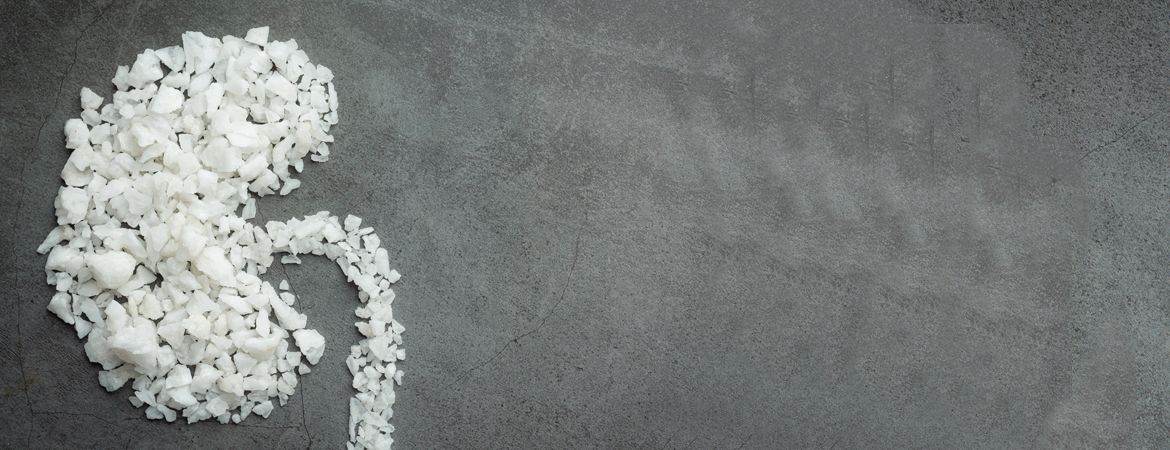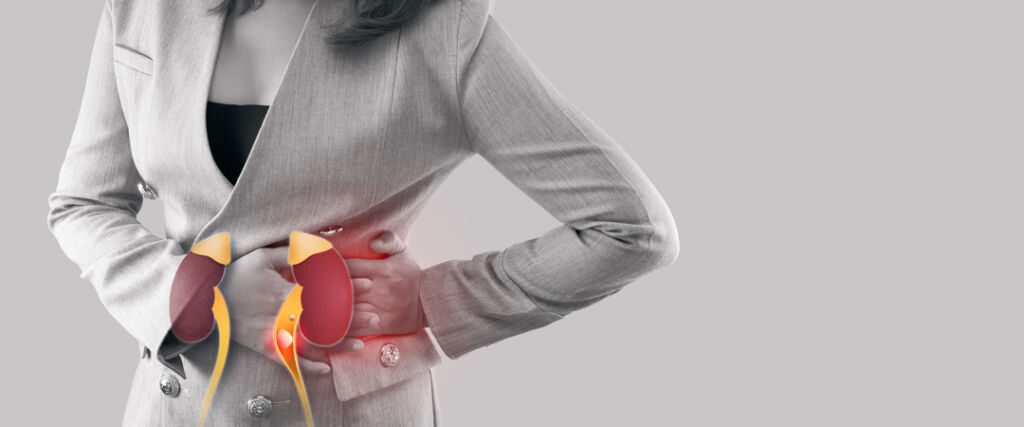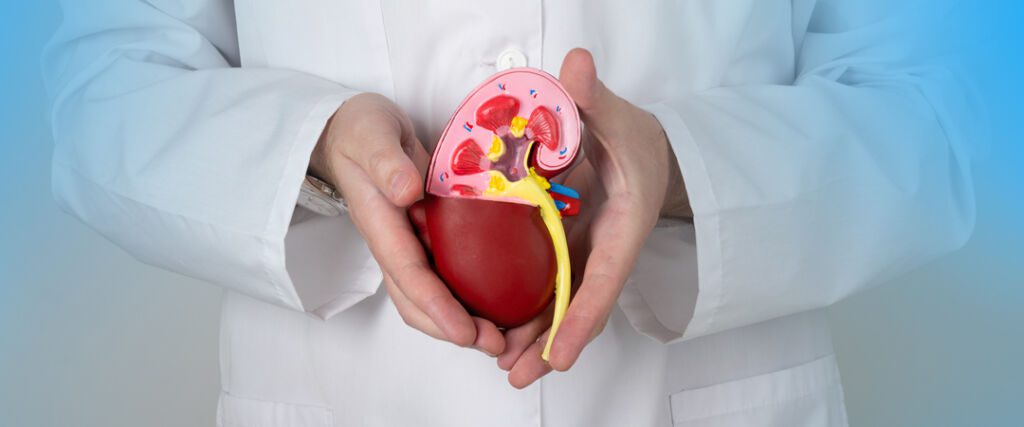
If you’re experiencing severe abdominal pain, it’s important to consider the possibility of kidney stones. In this handy guide, you’ll discover the common symptoms of this condition, as well as tips for pain relief and proper treatment.
WHAT ARE KIDNEY STONES?
Kidney stones, also known as urinary lithiasis, are solid deposits that form in the kidneys. They are usually made up of calcium crystals, uric acid or other substances found in urine. These stones can vary in size from small grains of sand to large pebbles. If they pass into the urinary tract, they can cause severe abdominal pain and other unpleasant symptoms. It’s important to recognise the common symptoms of kidney stones so you can get the right diagnosis and treatment.
WHAT IS RENAL COLIC?
Renal colic is severe pain in the kidney area that can be caused by a kidney stone or other condition. A kidney stone is a solid lump that forms in the urinary tract. It can pass on its own, but sometimes it needs to be removed surgically.
WHAT CAUSES RENAL COLIC?
The cause of renal colic is not always clear, but most cases are related to obstruction (blockage) of urine flow in the kidneys and ureters (the tubes that connect the kidneys to the bladder)
Kidney stones (nephrolithiasis) – tiny mineral deposits that form in the kidneys and travel through the urinary tract until they become trapped.
Inflammation or infection of the kidneys (pyelonephritis)

SEVERE ABDOMINAL PAIN:
Severe abdominal pain is one of the most common symptoms of kidney stones. The pain can be felt in your lower back, side or groin. It can be constant or come in waves and can be so severe that it prevents you from carrying out your daily activities. In addition to abdominal pain, you may also experience burning when urinating, frequent urination, blood in the urine, nausea and vomiting. If you experience any of these symptoms, it’s important to see a doctor for an accurate diagnosis and appropriate treatment.
FREQUENT, PAINFUL URINATION:
Frequent and painful urination is a common symptom of kidney stones. If you feel the need to urinate more often than usual, and this is accompanied by pain or burning when you urinate, this could be a sign of kidney stones. These symptoms are often caused by irritation of the urethra or bladder by kidney stones as they pass through the urinary system. It is important to see a doctor if you experience these symptoms so that you can receive appropriate treatment and prevent further complications.
BLOOD IN THE URINE:
Blood in the urine, also known as haematuria, is a common symptom of kidney stones. As kidney stones pass through the urinary tract, they can cause damage and irritation, which can lead to bleeding. If you notice blood in your urine, whether it’s visible to the naked eye or detected by laboratory tests, it’s important to see your doctor immediately. Blood in the urine can be a sign of other serious health problems, so it’s important to get proper diagnosis and treatment.
NAUSEA AND VOMITING:
Nausea and vomiting are also common symptoms of kidney stones. When kidney stones cause a blockage in the urinary tract, this can lead to a build-up of fluid in the stomach, which can cause nausea and vomiting. If you experience these symptoms in addition to severe abdominal pain, it’s important to see a doctor for an accurate diagnosis and appropriate treatment. Don’t ignore these symptoms as they may indicate the presence of kidney stones and require medical intervention.

SURGICAL TREATMENT OF KIDNEY STONES:
The urologist’s choice of surgical treatment depends on the patient’s morphology and comorbidities, the location of the stone, its size and composition, and the anatomy of the urinary tract.
Extracorporeal lithotripsy: Extracorporeal lithotripsy is a procedure used to treat kidney and ureteral stones.
Extracorporeal lithotripsy uses sound waves to break up a kidney stone into small pieces. The fragments are then passed through a tube inserted into the bladder.
Extracorporeal lithotripsy is also known as extracorporeal shock wave lithotripsy (ESWL), which is a type of percutaneous nephrolithotomy (PCNL). Percutaneous nephrolithotomy is another name for the removal of kidney stones using instruments passed through small incisions in the skin.
Ureteroscopy – Ureteroscopy is a minimally invasive procedure that allows a doctor to examine and treat the inside of the ureter, the tube that carries urine from the kidneys to the bladder.
During a ureteroscopy, the doctor passes a thin tube called a ureteroscope through the urethra and into the bladder. He then uses special tools to look inside your kidney and remove any blockages or stones in the ureter.
Ureteroscopy is usually done as an outpatient procedure. It usually takes 30 minutes, but can take up to two hours if other procedures are needed.

